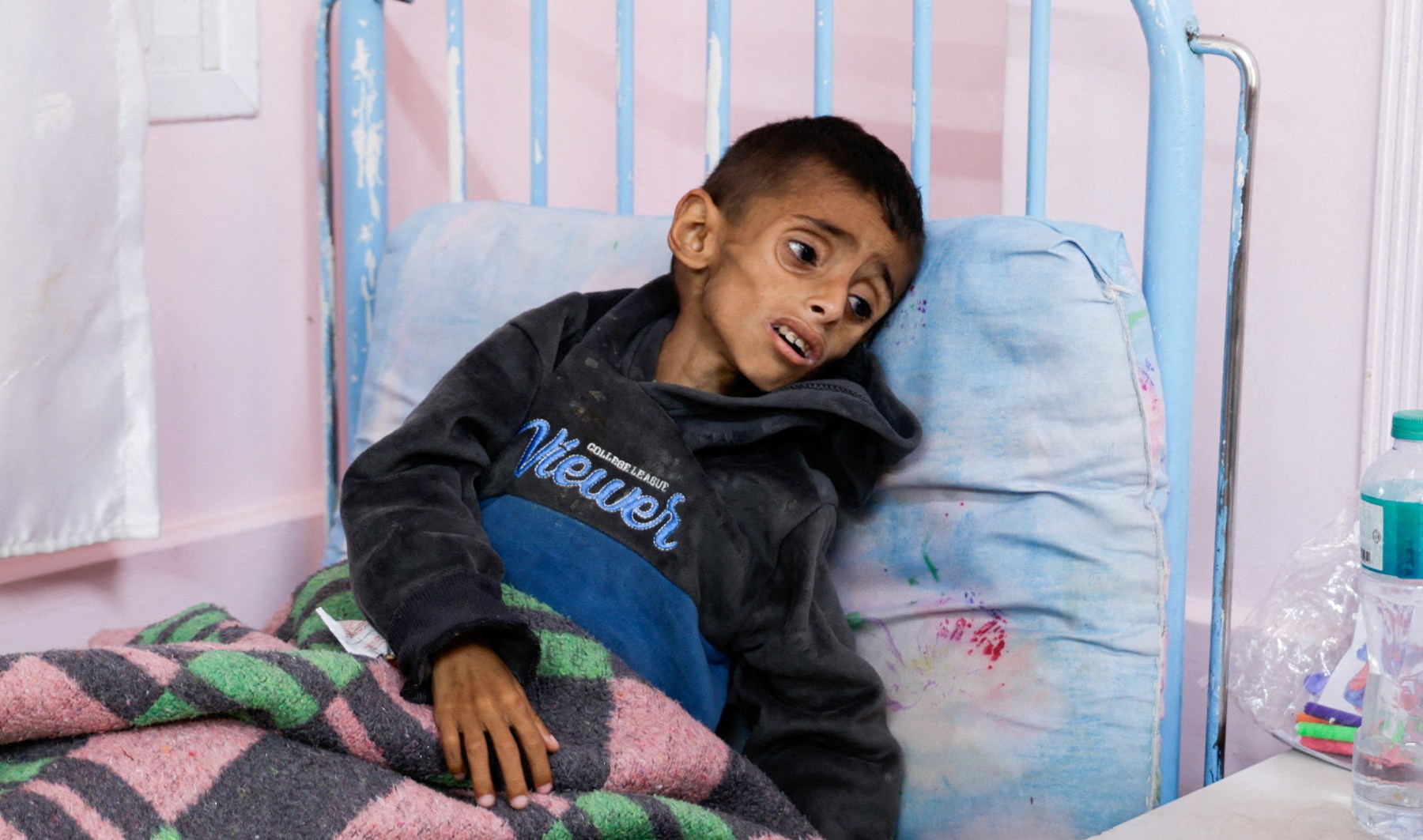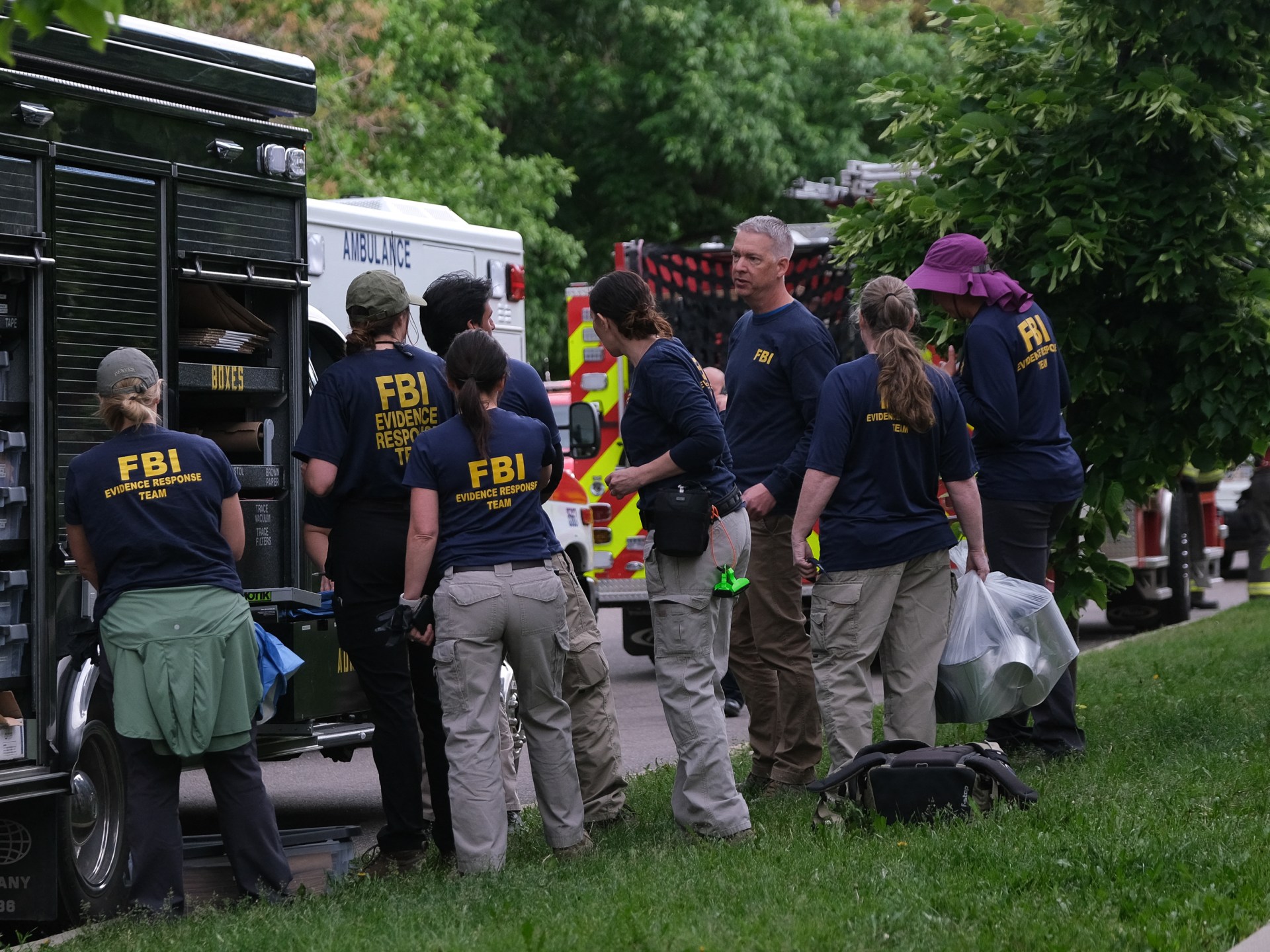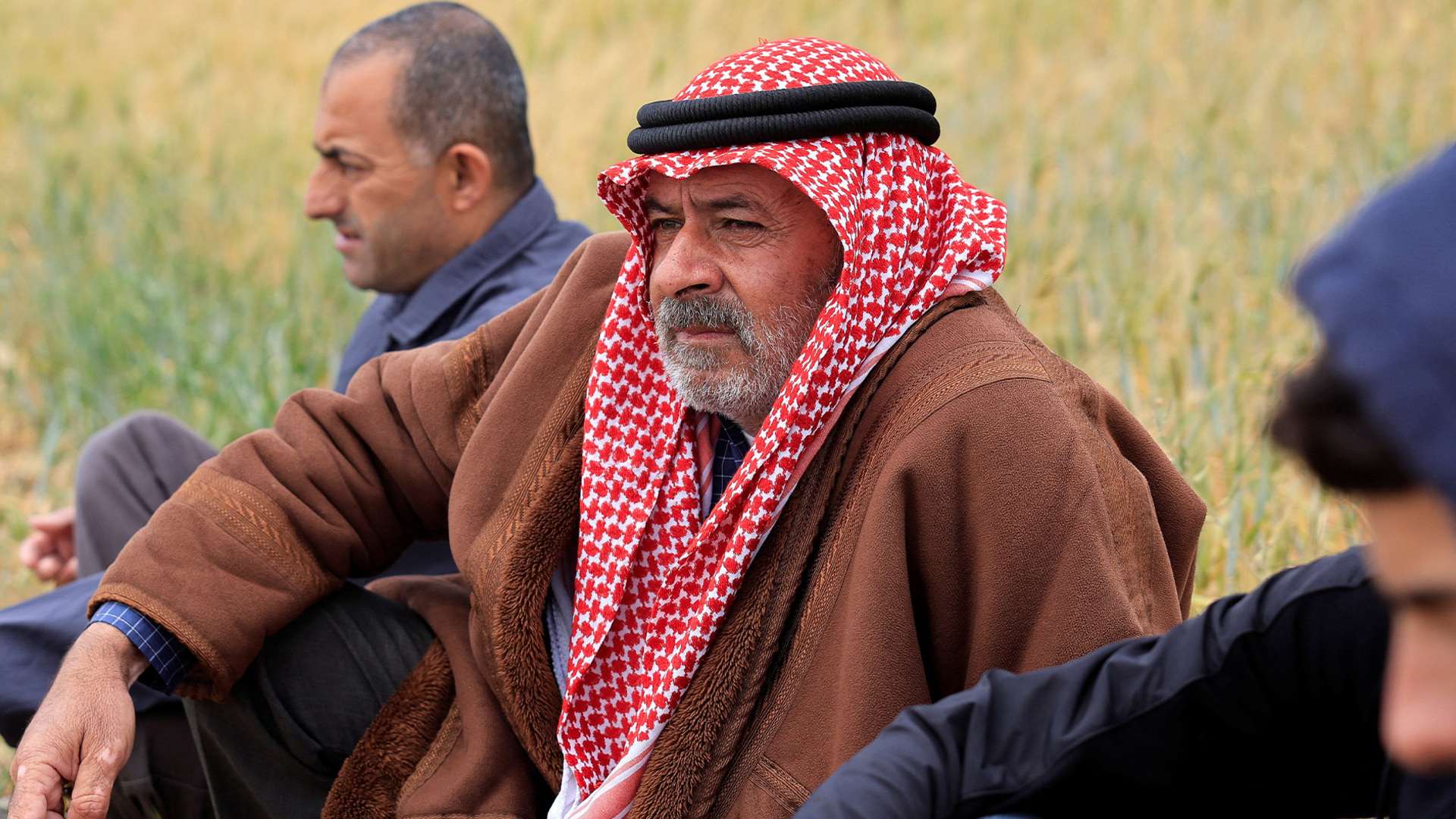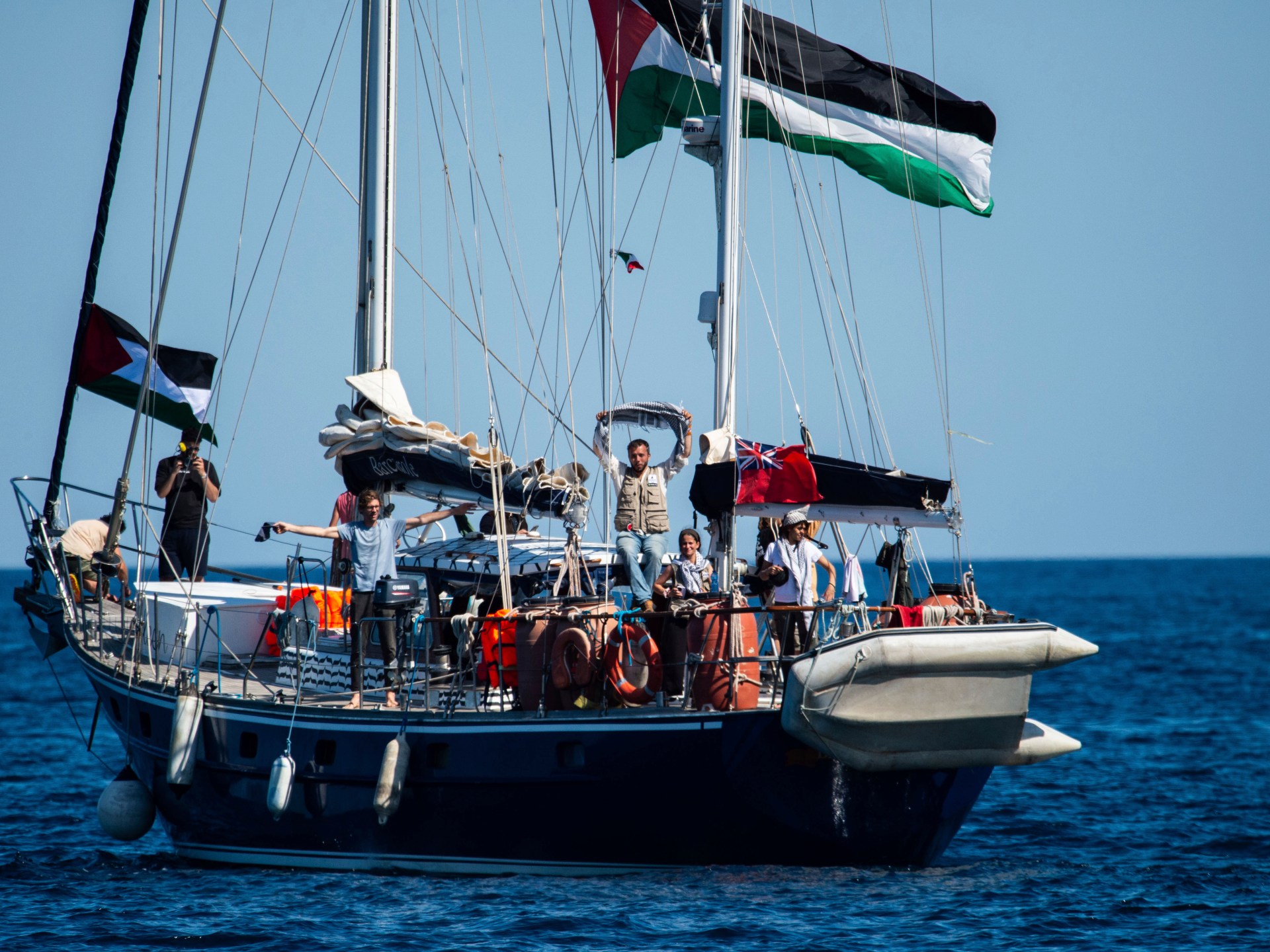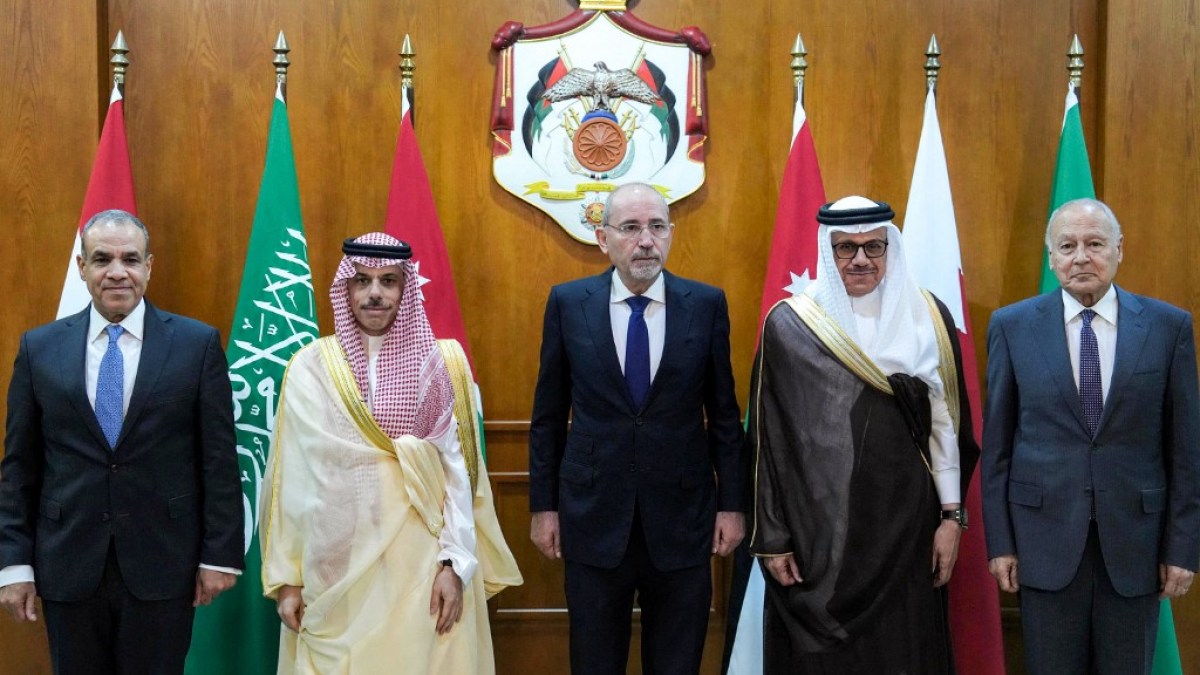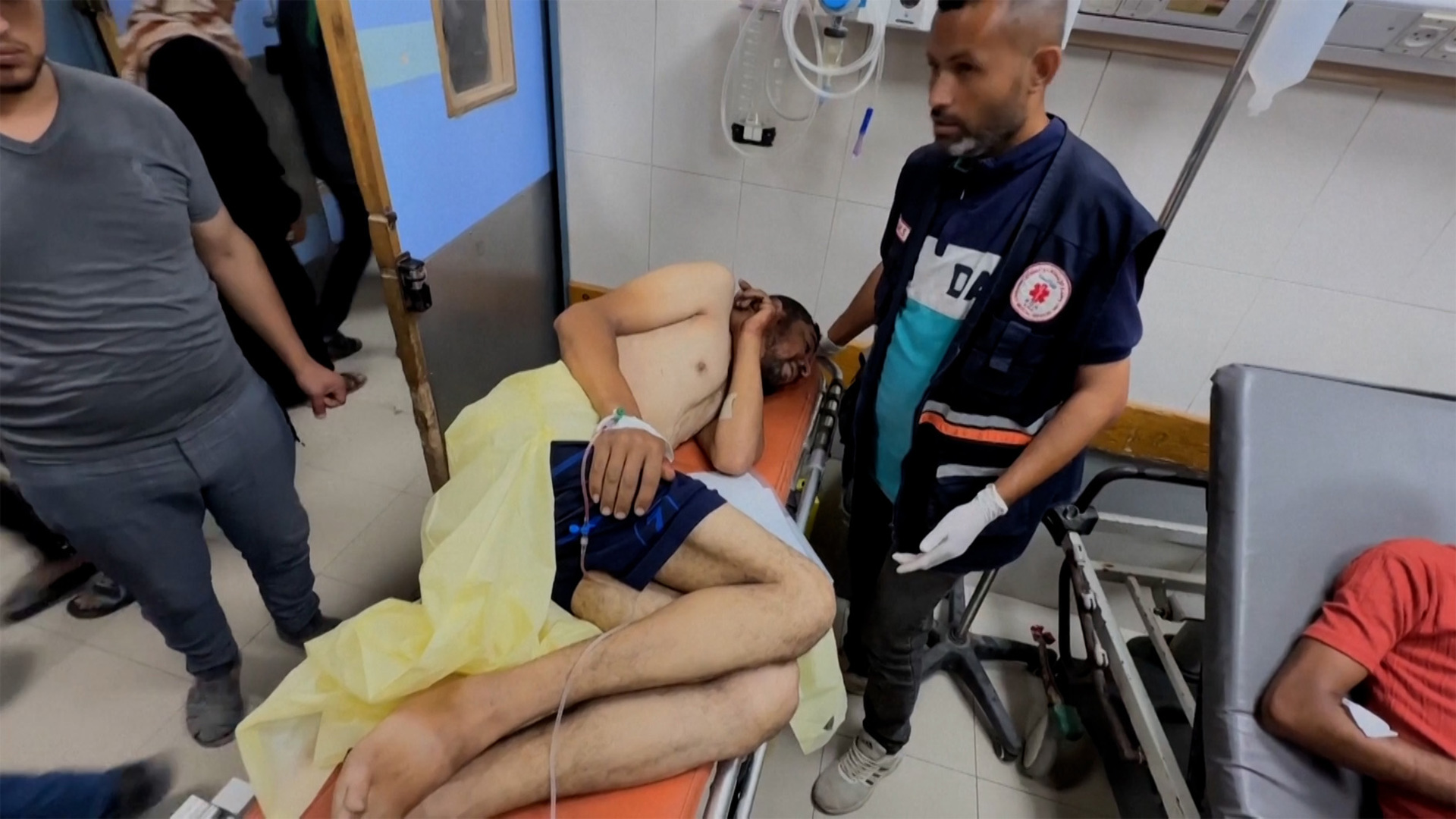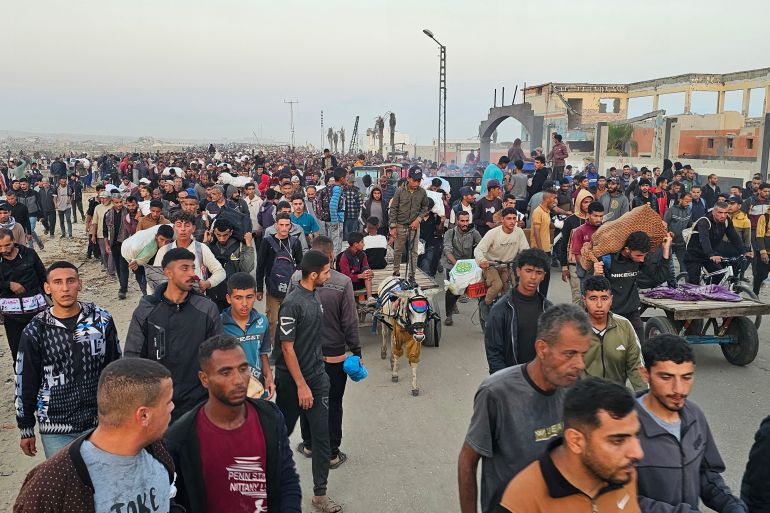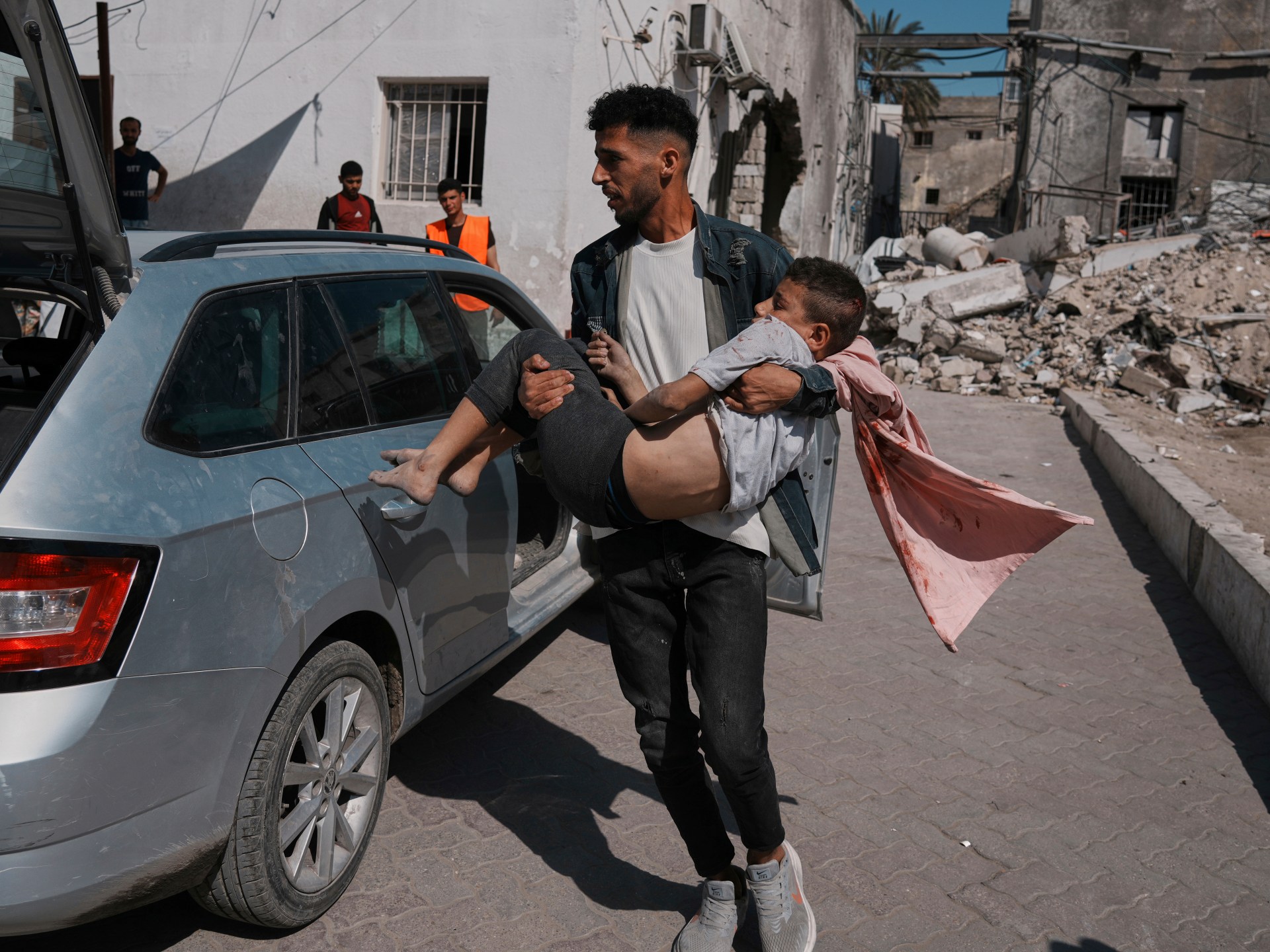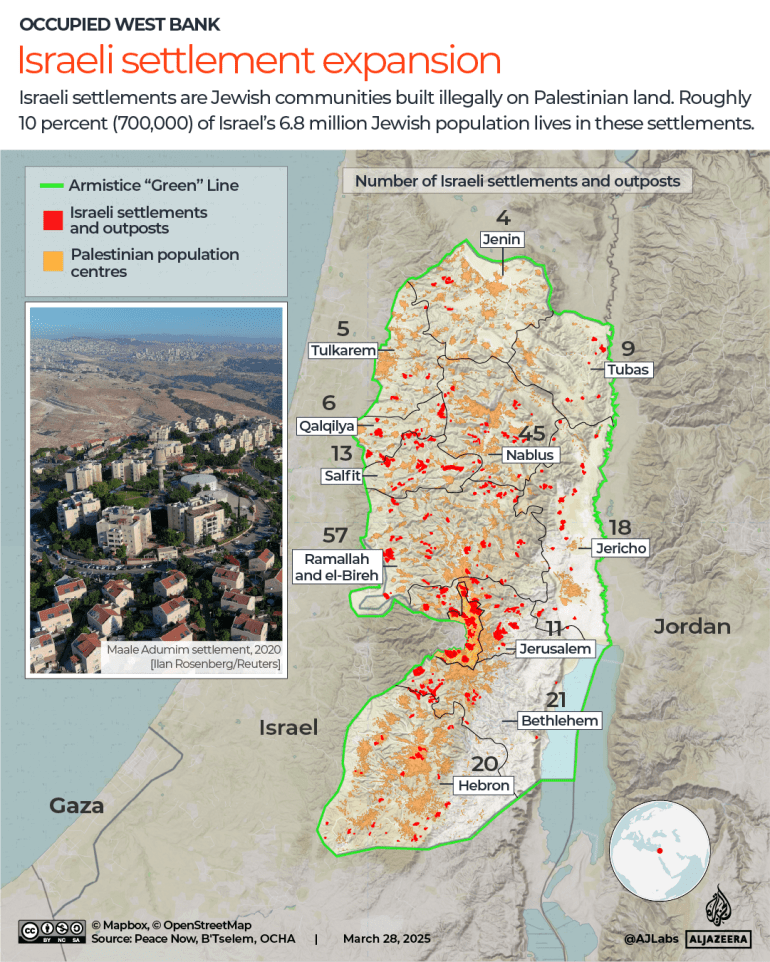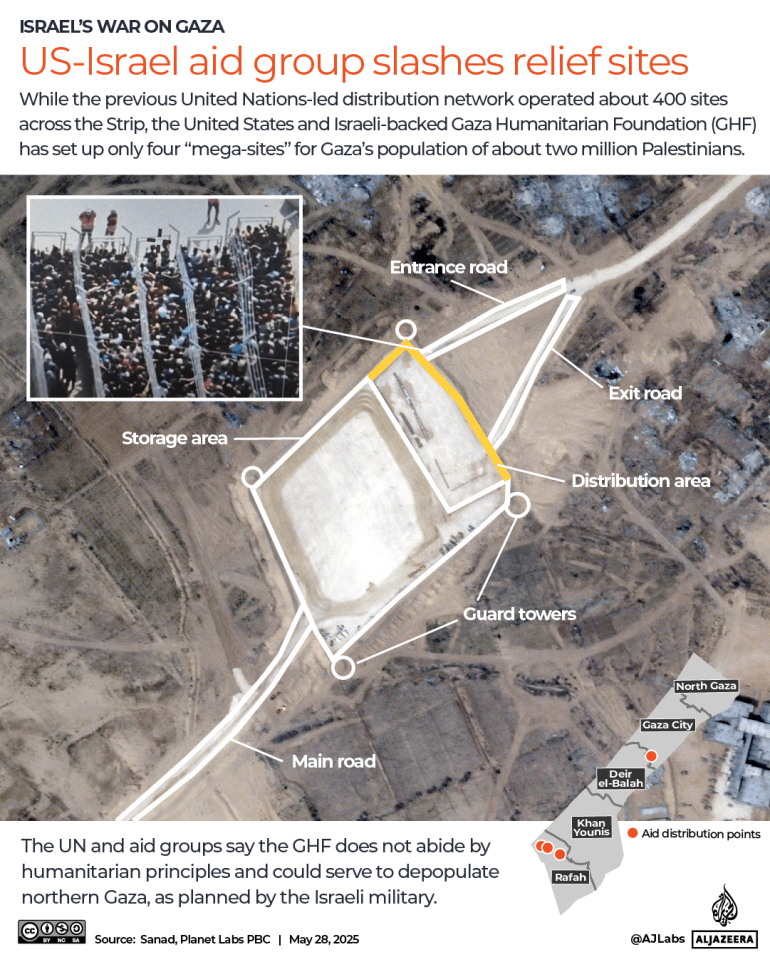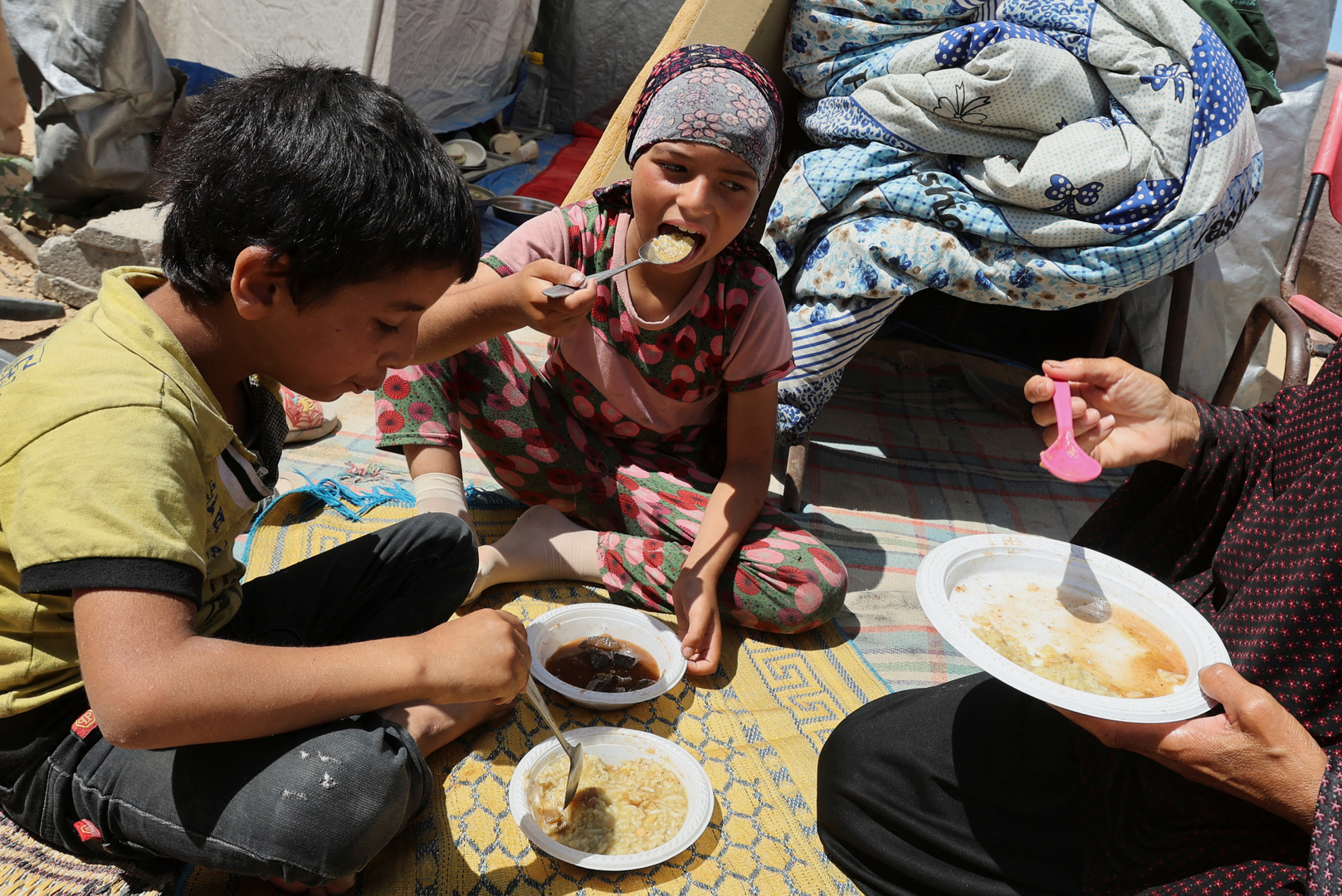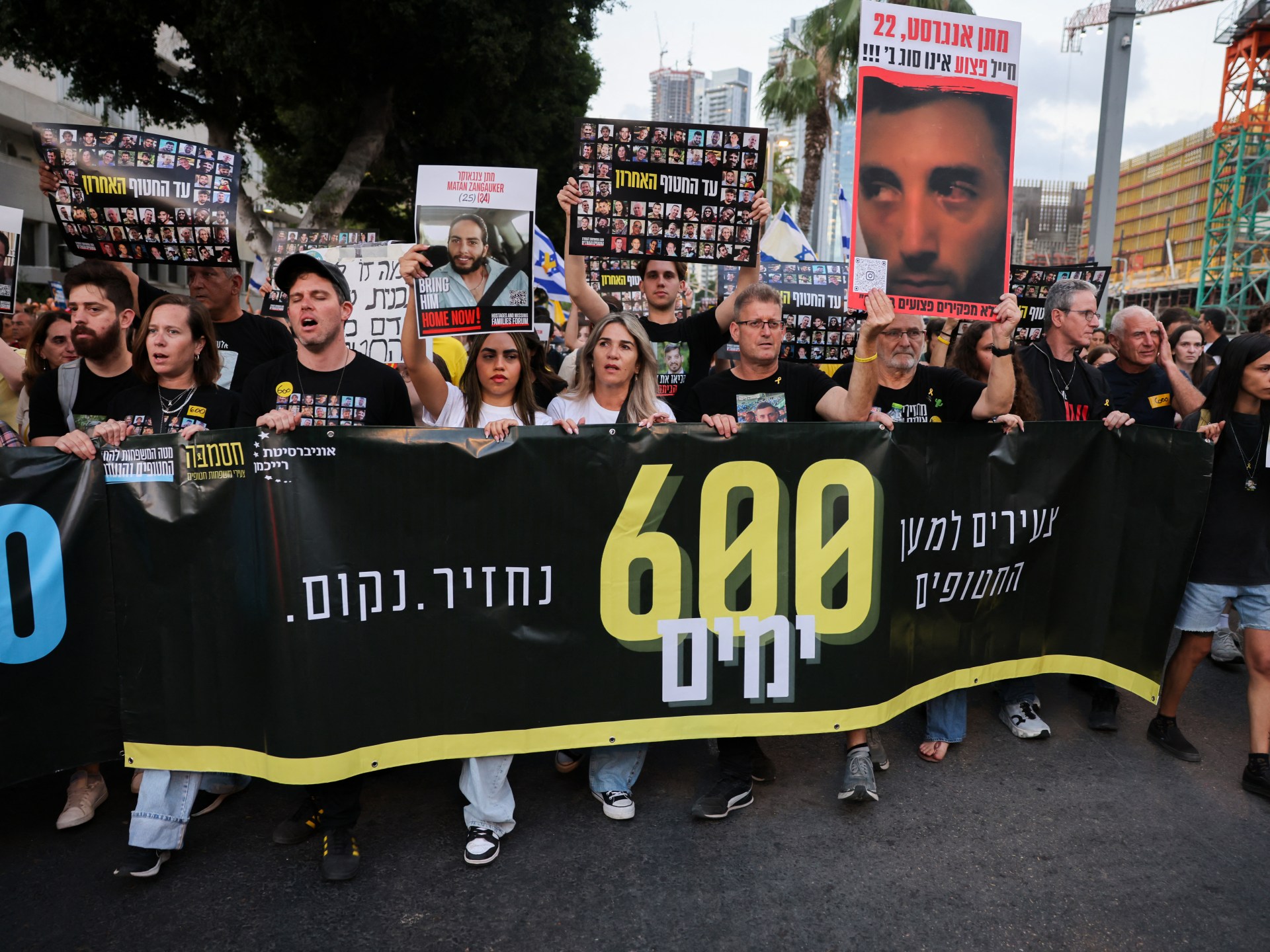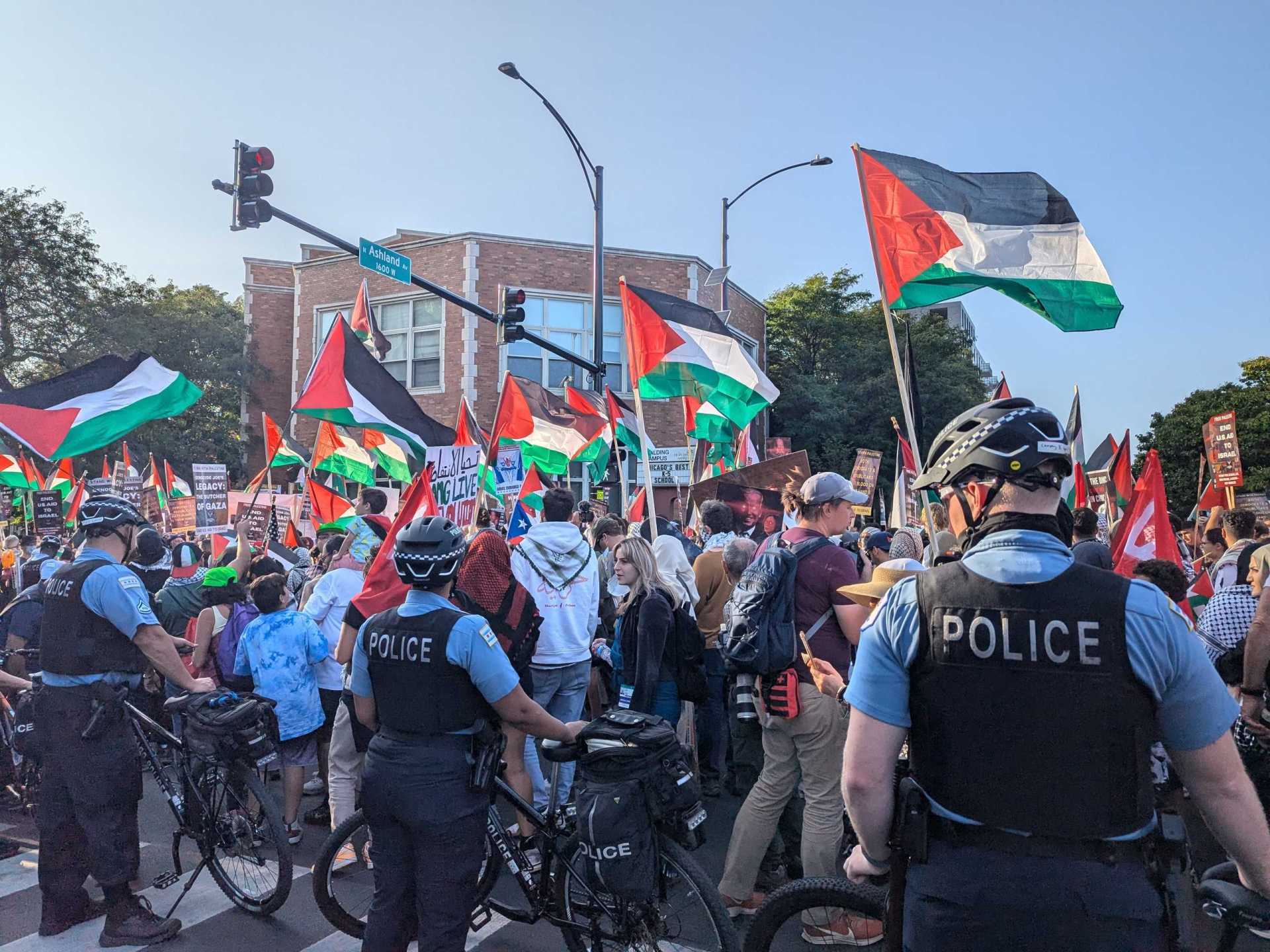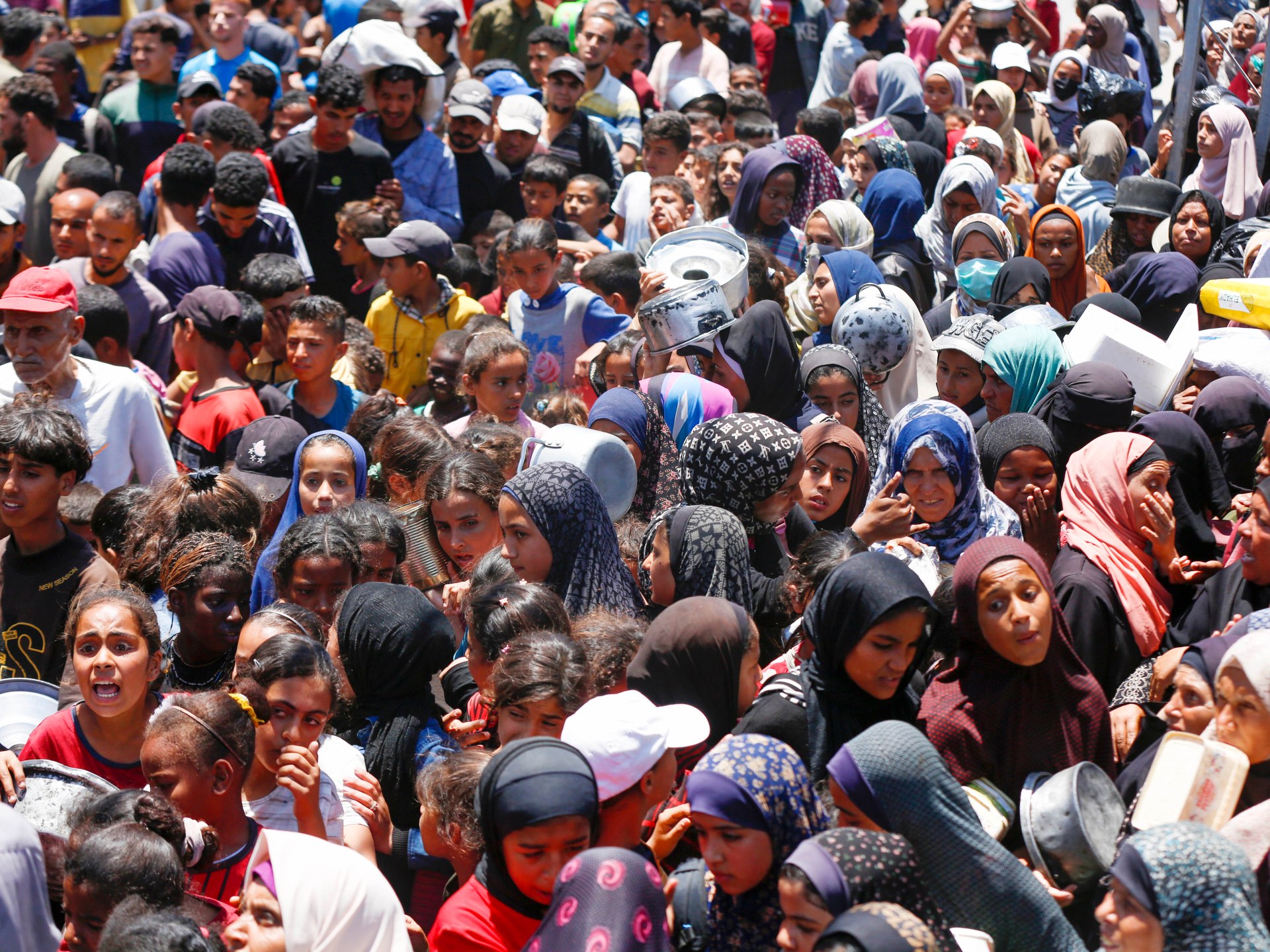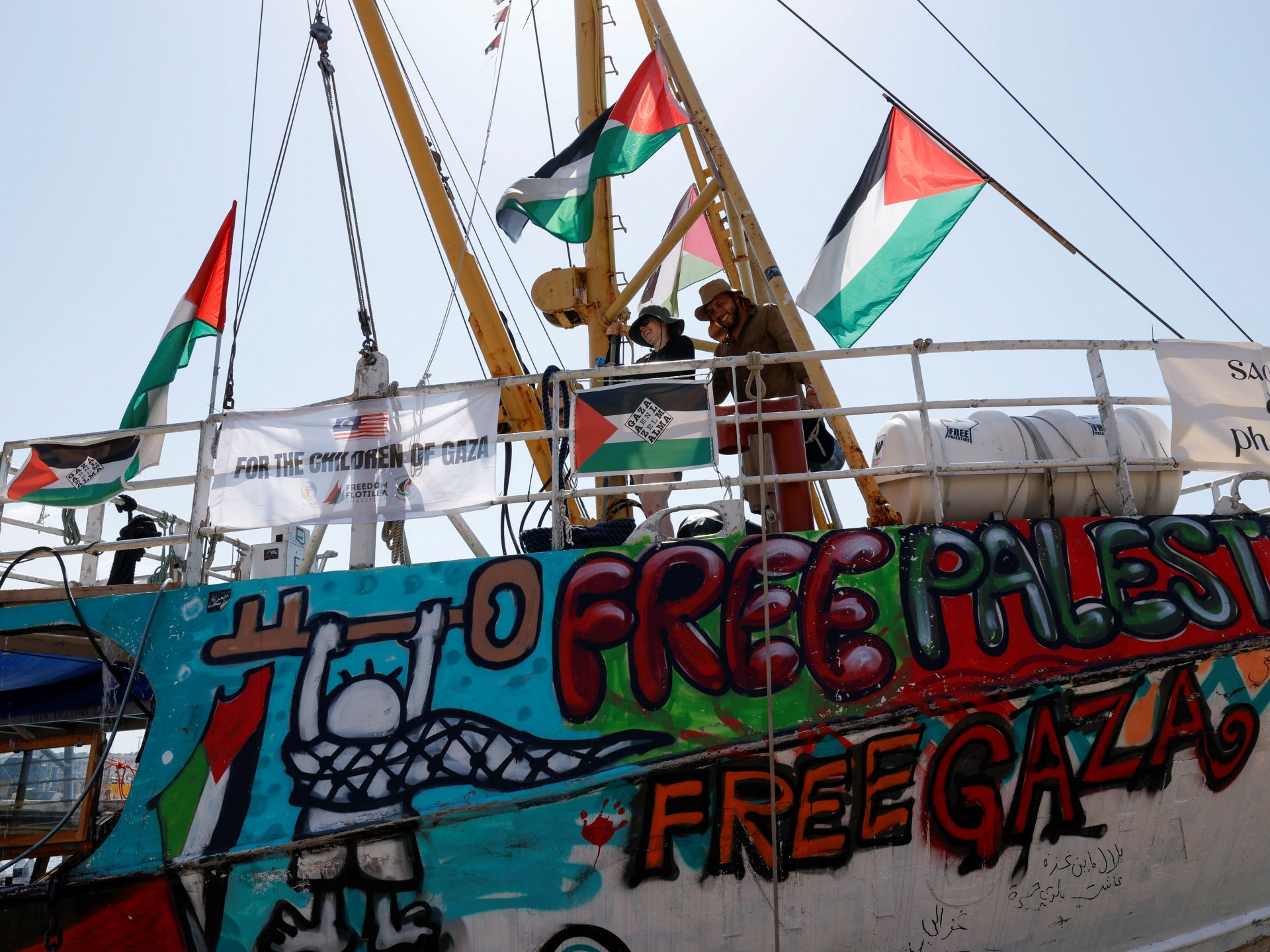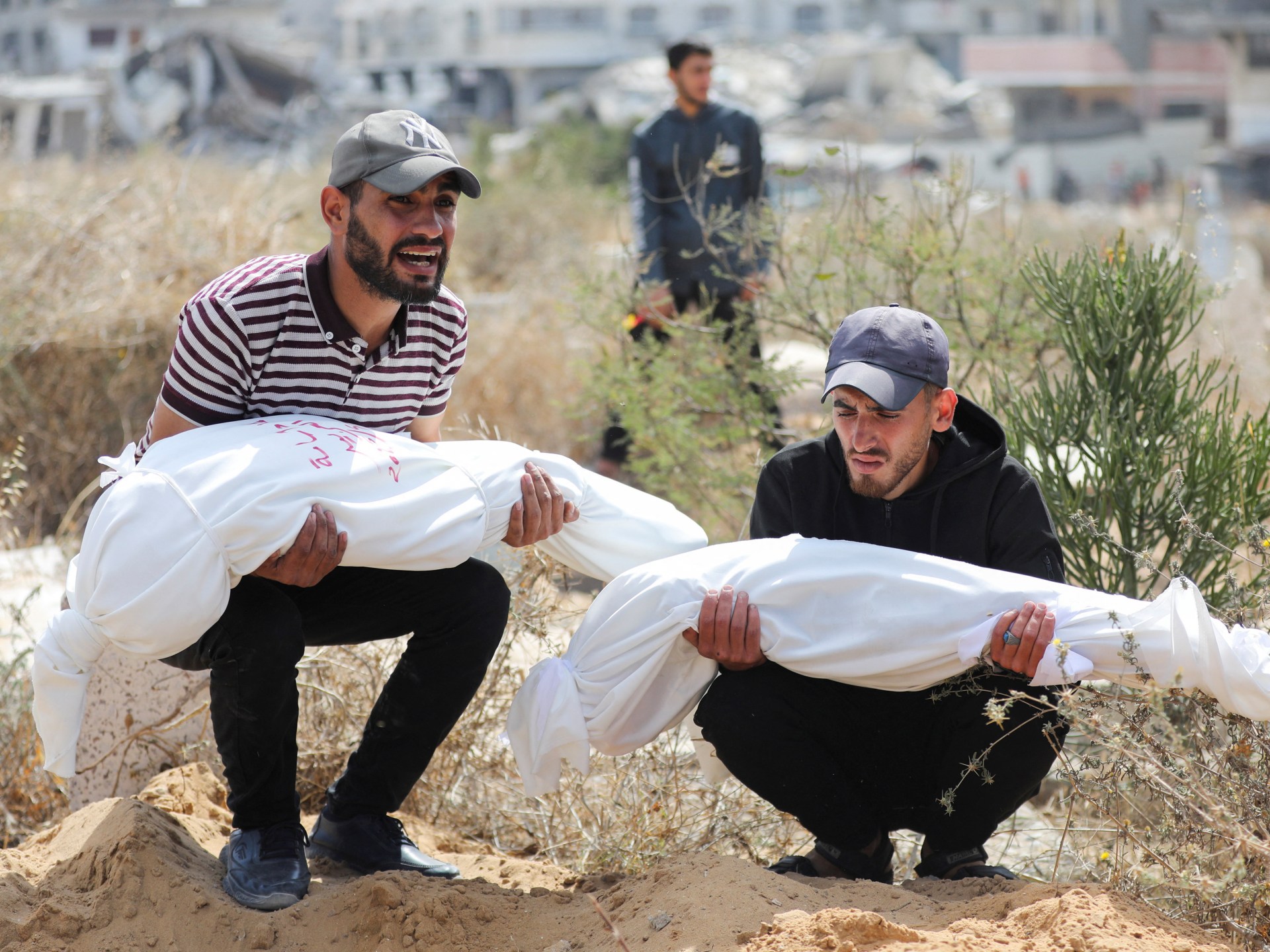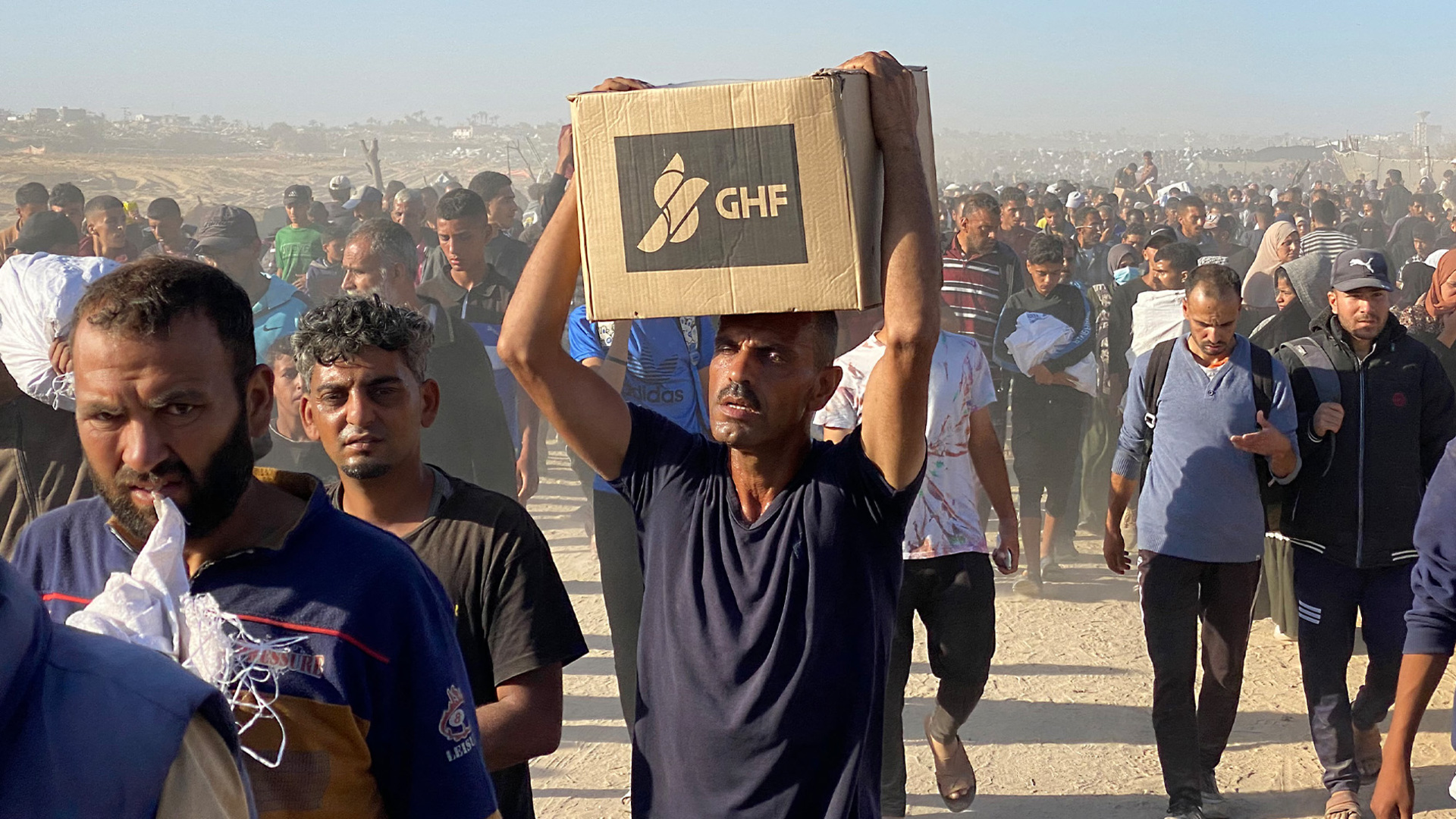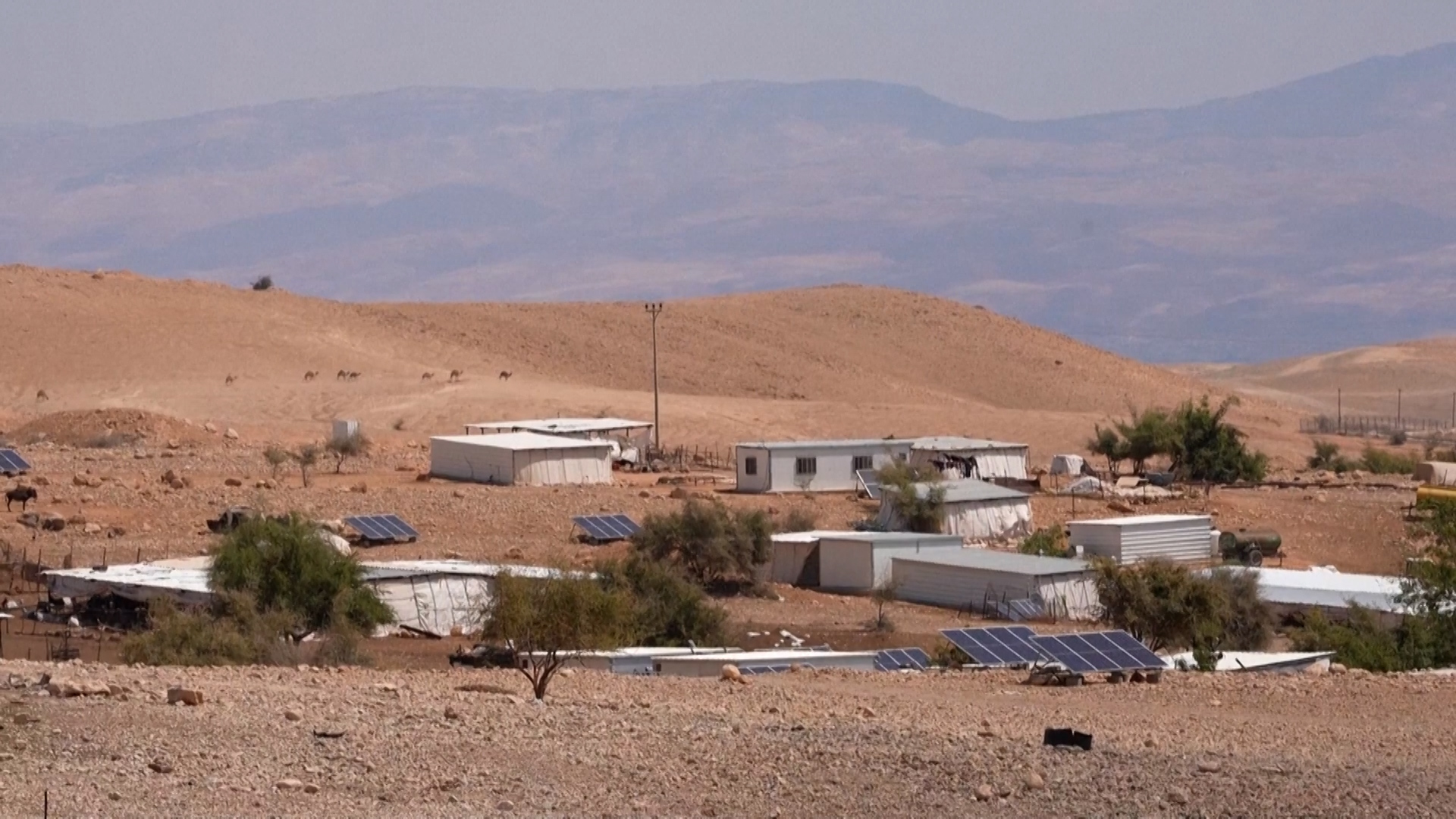UN demands probe as Israeli forces kill more people near aid site in Gaza | Israel-Palestine conflict News
Israeli forces have opened fire again on Palestinians seeking humanitarian aid from a distribution site in Gaza, killing at least three people and injuring more than 30, as the United Nations demands an independent investigation into the repeated mass shootings of aid seekers in the strip.
The shooting erupted at sunrise on Monday at the same Israeli-backed aid point in southern Gaza where soldiers had opened fire just a day earlier, according to health officials and witnesses.
“The Israeli military opened fire on civilians trying to get their hands on any kind of food aid without any kind of warning,” Al Jazeera’s Tareq Abu Azzoum reported from Deir el-Balah in central Gaza.
“This is a pattern that’s been widely condemned by international aid organisations because it enhances the breakdown of civil order without ensuring humanitarian relief can be received by those desperately in need.”
Witnesses said Israeli snipers and quadcopter drones routinely monitor aid sites run by the Gaza Humanitarian Foundation (GHF), which is backed by Israel and the United States.
A Red Cross field hospital received about 50 people wounded in the latest shooting, including two who were dead on arrival, said Hisham Mhanna, a spokesperson for the International Committee of the Red Cross. Most had been hit by bullets or shrapnel. A third body was taken to Nasser Hospital in nearby Khan Younis.
Moataz al-Feirani, 21, said he was shot in the leg while walking with thousands of others towards the food site.
“We had nothing, and they [the Israeli military] were watching us,” he told The Associated Press news agency, adding that surveillance drones circled overhead. The shooting began about 5:30am (02:30 GMT) near the Flag Roundabout, he said.
The pattern of deadly violence around the GHF aid distribution site has triggered mounting international outrage, and UN Secretary-General Antonio Guterres on Monday demanded an independent inquiry into the mass shooting of Palestinians.
“It is unacceptable that Palestinians are risking their lives for food,” he said. “I call for an immediate and independent investigation into these events and for perpetrators to be held accountable.”
The Israeli military has denied targeting civilians, claiming its soldiers fired “warning shots” at individuals who “posed a threat”.
The GHF has also denied the shootings occurred although doubts about its neutrality have intensified since its founding executive director, former US marine Jake Wood, resigned before operations even began after he questioned the group’s “impartiality” and “independence”.
Critics said the group functions as a cover for Israel’s broader campaign to depopulate northern Gaza as it concentrates aid in the south while bypassing established international agencies.
Aid is still barely trickling into Gaza after Israel partially lifted a total siege that for more than two months cut off food, water, fuel and medicine to more than two million people.
Thousands of children are at risk of dying from hunger-related causes, the UN has previously warned.
At least 51 people killed in 24 hours
Elsewhere in the territory, Israeli air attacks continued to hammer residential areas.
In Jabalia in northern Gaza, Israeli forces killed 14 people, including seven children, in an attack on a home, according to the Palestinian Civil Defence agency. At least 20 people remained trapped under the rubble.
Two more Palestinians were killed and several wounded in another attack in Deir el-Balah, according to the Palestinian news agency Wafa, while a drone attack in Khan Younis claimed yet another life.
Gaza’s Ministry of Health reported that at least 51 Palestinians have been killed and 503 injured in Israeli attacks across the territory in the latest 24-hour reporting period alone.
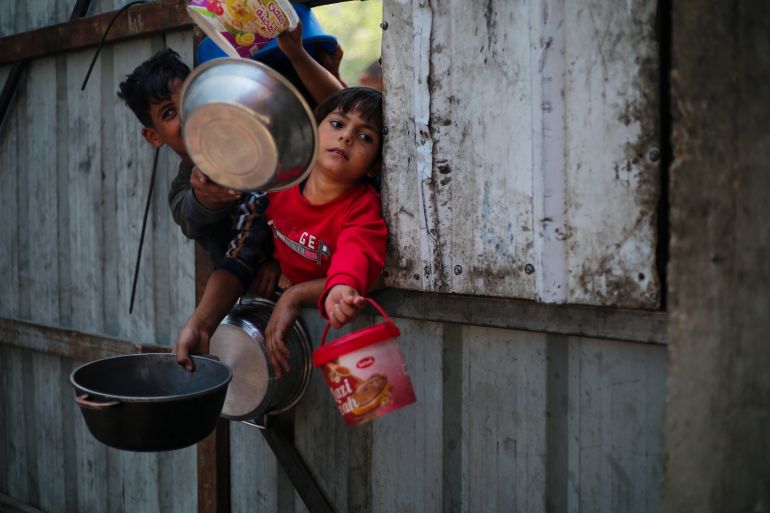
Despite growing international condemnation, Israel’s military on Monday ordered the displacement of even more civilians from parts of Khan Younis, warning it would “operate with great force”.
Roughly 80 percent of the strip is now either under Israeli military control or designated for forced evacuation, according to new data from the Financial Times, as Gaza’s 2.3 million residents are crammed into an ever-shrinking patch of land in southern Gaza near the Egyptian border.
Israel has made little secret of its aim to permanently displace Gaza’s population as officials openly promote “voluntary migration” plans.
The Financial Times reported that the areas Palestinians are being pushed into resemble a “desert wasteland with no running water, electricity or even hospitals”.
Satellite images showed Israeli forces clearing land and setting up military infrastructure in evacuated areas.
Analysts who reviewed dozens of recent forced evacuation orders said the trend has accelerated since the collapse of a truce in March.
“The Israeli government has been very clear with regards to what their plan is about in Gaza,” political analyst Xavier Abu Eid told Al Jazeera.
“It is about ethnic cleansing.”
